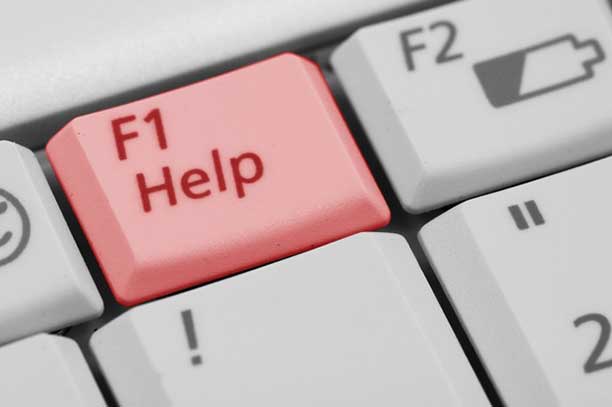The Internet has become a thick thread woven through our lives. We wake in the morning to check our email, spend our lunch break with Facebook, and look at the news before we go to bed. In between, there are games, videos, encyclopedia articles, and tips about how to grow tomatoes or build a solar-powered heater or charge our cell phone or peel a banana or play the ukulele. We find ourselves reading about the beautiful actress in an intriguing new movie or the plight of Syrian refugees fleeing from desperate and shocking violence.
When we look up at the clock, an hour has ticked by, or two, or three. What was it we were searching up?
Working from home affords me the luxury of eating when I’m hungry, taking breaks when I need to, and surfing, without supervision, all day on my computer – the perfect tool for procrastination.
Certainly the Internet has been an amazing force in my life, shaping it more than just about anything I can imagine. But, in the middle of writing an article or researching a topic or structuring a chapter, I feel the constant pull of the Internet. I wonder what my friends are up to. I could check Facebook for just a moment. So-and-so has a new album out. I should read some reviews and listen to audio clips. My favorite poet has done an interview I should look up. I remember an old children’s show I used to watch. Maybe I can find it if I search long enough.
And then, I see that hours have passed, and I can’t remember where they went.

Perhaps, you feel pulled by these sorts of thoughts, too.
The Habit
I intend to curb parts of my Internet usage during the workday.
While I do use the computer for web-based research, writing and posting articles, maintaining followers and writing my book, I spend much more of my time on Facebook (and the links to articles and videos I click) than I’d like. In order to cut back on Facebook, I’ve decided to create “Interest Lists” that only I can see. Instead of simply logging onto my news feed and scrolling through posts from friends, from groups, from pages I pressed the “like” button on years ago – all jumbled together – I’ll be able to look at only posts from my friends, or only posts from groups I participate in, or only pages concerned with animal welfare or simple living or Buddhism. The pages that post recipes will be in their own separate list, as will the businesses and endeavors of friends.
So, if I want to look at whole foods, plant-based recipes, or I want to see posts from my Buddhist friends, I can. If I’d rather focus on something else, those posts don’t show up.
I’ll also begin writing “offline.” Writing in a word processing program without use of the Internet will keep me focused on what needs to be done. Because of this, however, I’ll need to invest in a good thesaurus, since I won’t have access to Thesaurus.com. My favorite, by far, is The Synonym Finder by J.I. Rodale.
I’ll allow myself ½ hour to browse Facebook in the morning, and ½ hour later in the day, and I’ll post to my Live Simply Facebook page daily. One day each week, though (either Saturday or Sunday) will be completely Facebook free.
 For me, this will likely be enough, as Facebook takes up the bulk of my online time. If I’m having a moment of trouble framing my words or finding the right photograph, I tend to turn to Facebook and read posts, click links, share things, post updates and join discussions. It’s much easier than working through my problem. After a few minutes, I scroll back to the top to see what new things have been posted since I logged in. Without Facebook, I estimate that I’ll have 25% more time to do the work I want so much to do.
For me, this will likely be enough, as Facebook takes up the bulk of my online time. If I’m having a moment of trouble framing my words or finding the right photograph, I tend to turn to Facebook and read posts, click links, share things, post updates and join discussions. It’s much easier than working through my problem. After a few minutes, I scroll back to the top to see what new things have been posted since I logged in. Without Facebook, I estimate that I’ll have 25% more time to do the work I want so much to do.
I’ll also install a mindfulness bell to remind me to relax and breathe and to bring me back to the present moment.
Other Ways to Curb Internet Usage
In addition to scheduling your online time, doing computer work “offline” when possible and installing a mindfulness bell, what else can you do to reduce your Internet use?
- First and foremost, list what you’d like to be doing with the time you currently spend online. Do the things on your list nourish your soul more than surfing or reading through Facebook feeds or news sites? Will they help you move forward in your life? Write them all out in detail and refer back to the list whenever you’re feeling tempted to surf.
- Set an Internet-free
 hour/day/weekend/week. Choose a time to be completely free from websites, email, instant messaging, etc. – including cell phones, iPods and iPads, and tablets. Tailor this time to suit your needs and to feed your soul. Let your friends and loved ones know you’ll be unavailable online.
hour/day/weekend/week. Choose a time to be completely free from websites, email, instant messaging, etc. – including cell phones, iPods and iPads, and tablets. Tailor this time to suit your needs and to feed your soul. Let your friends and loved ones know you’ll be unavailable online. - If you have a problem disengaging yourself from a certain site, install software that limits the amount of time you can spend there – or disallows it, entirely.
- Allow yourself to surf only after you’ve completed whatever needs completing. Consider Internet surfing a reward for a job well done.
Do you feel pulled by the Internet? How do you limit your time online?
